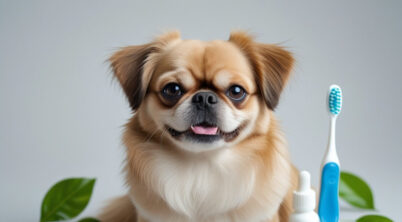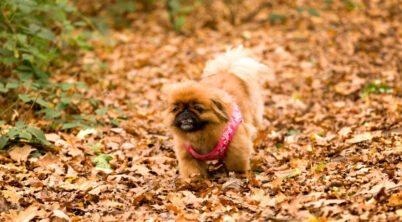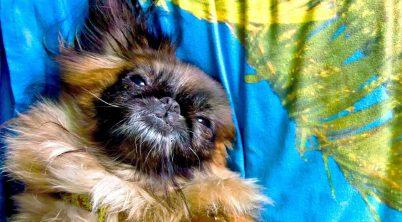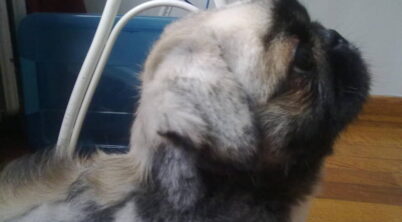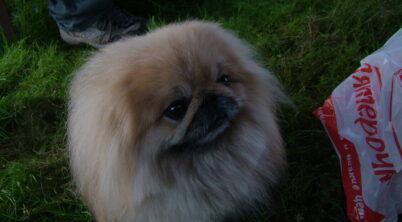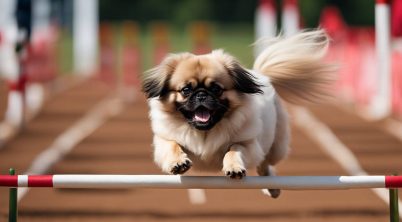The Pekingese is a small dog breed with long, luxurious hair, known for its distinctive appearance and playful demeanor. However, these charming pets are prone to certain health issues, including ear problems, which can be a cause for concern to owners. Among the various ailments that Pekingese face, ear infections are fairly common, and it’s essential that owners take preventive measures to ensure their little companion remains in good health.
Pekingese dogs have a unique anatomy – their ears are adorned with long, flowing hair that creates a warm, moist environment, ideal for breeding bacteria or fostering ear infections. Ear infections in Pekingese can be caused by a buildup of wax, dirt, or debris, leading to discomfort and an increased need for regular grooming and care. Fortunately, with the right knowledge and diligent maintenance, most ear infections can be avoided or properly treated.
To help prevent ear infections in Pekingese dogs, it’s crucial that owners develop a routine for cleaning their pet’s ears. This can be done using a dog-specific ear cleaner every week or two, ensuring that any buildup of dirt, wax, or debris is gently removed, and the ear remains healthy.
Table of Contents
Common Ear Problems in Pekingese
Ear Infections
Pekingese dogs are prone to ear infections due to the profuse hair in their ear canals. Ear infections can cause discomfort, inflammation, and, if left untreated, may lead to more serious health issues.
Causes and Symptoms
Ear infections in Pekingese may be caused by various factors such as:
- Excessive hair growth in the ear canal
- Allergies
- Bacteria or yeast overgrowth
- Moisture retention in the ear canal
Symptoms of ear infections in Pekingese include:
- Scratching or rubbing the ear area
- Head shaking
- Unpleasant odor from the ears
- Discharge from the ears
- Redness or swelling in the ear canal
- Pain or sensitivity when touching the ears
Prevention and Treatment
To prevent ear infections in Pekingese, regular ear cleaning is essential. This includes:
- Plucking excessive hair in the ear canal
- Gently cleaning the ears with a dog-specific ear cleaner and a cotton ball or gauze
- Keeping the dog’s ears dry after swimming or bathing
If your Pekingese shows symptoms of an ear infection, it is important to consult with a veterinarian. The veterinarian will examine your dog’s ears and may perform tests to identify the cause of the infection. Treatment options may include:
- Antibiotics or antifungal medications for bacterial or yeast infections
- Anti-inflammatory drugs to reduce inflammation and discomfort
- Ear-cleaning solutions prescribed by the veterinarian
- In severe cases, surgical intervention may be necessary
By being vigilant about your Pekingese’s ear health and seeking timely treatment from a veterinarian when needed, you can help keep your dog’s ears healthy and infection-free.
Feeding and Nutrition
Proper feeding and nutrition are essential for maintaining your Pekingese’s ear health. A balanced diet plays a crucial role in preventing ear infections and supporting overall well-being.
One of the key components in a Pekingese’s diet should be fat. Fat sources, such as Omega-3 fatty acids, are essential for maintaining skin integrity and moisture, including the skin inside the ear canal. Adequate fat intake can help prevent dry, irritated skin and reduce the risk of infections.
To maintain a healthy weight and support overall health, it’s essential to monitor your Pekingese’s caloric intake. Since this breed is small and can quickly gain weight, it’s important to provide the right amount of calories based on their age, activity level, and size.
When selecting dog food for your Pekingese, look for high-quality ingredients that provide essential nutrients. Opt for premium dog food brands that meet the guidelines laid out by the Association of American Feed Control Officials (AAFCO). These guidelines ensure that the food provides all the necessary nutrients for your dog’s health.
Here are some key elements to include in a Pekingese’s diet:
- Protein from quality meat sources
- Essential fatty acids, such as Omega-3s
- Small amounts of carbohydrates from vegetables, herbs, or berries
- Natural vitamins and minerals from bone and plant sources
- Adequate hydration through high moisture foods and drinking water
In summary, a well-balanced diet plays a critical role in maintaining your Pekingese’s ear health and overall well-being. Give special attention to fat sources, caloric intake, and the quality of the dog food to ensure your pet thrives throughout their life.

